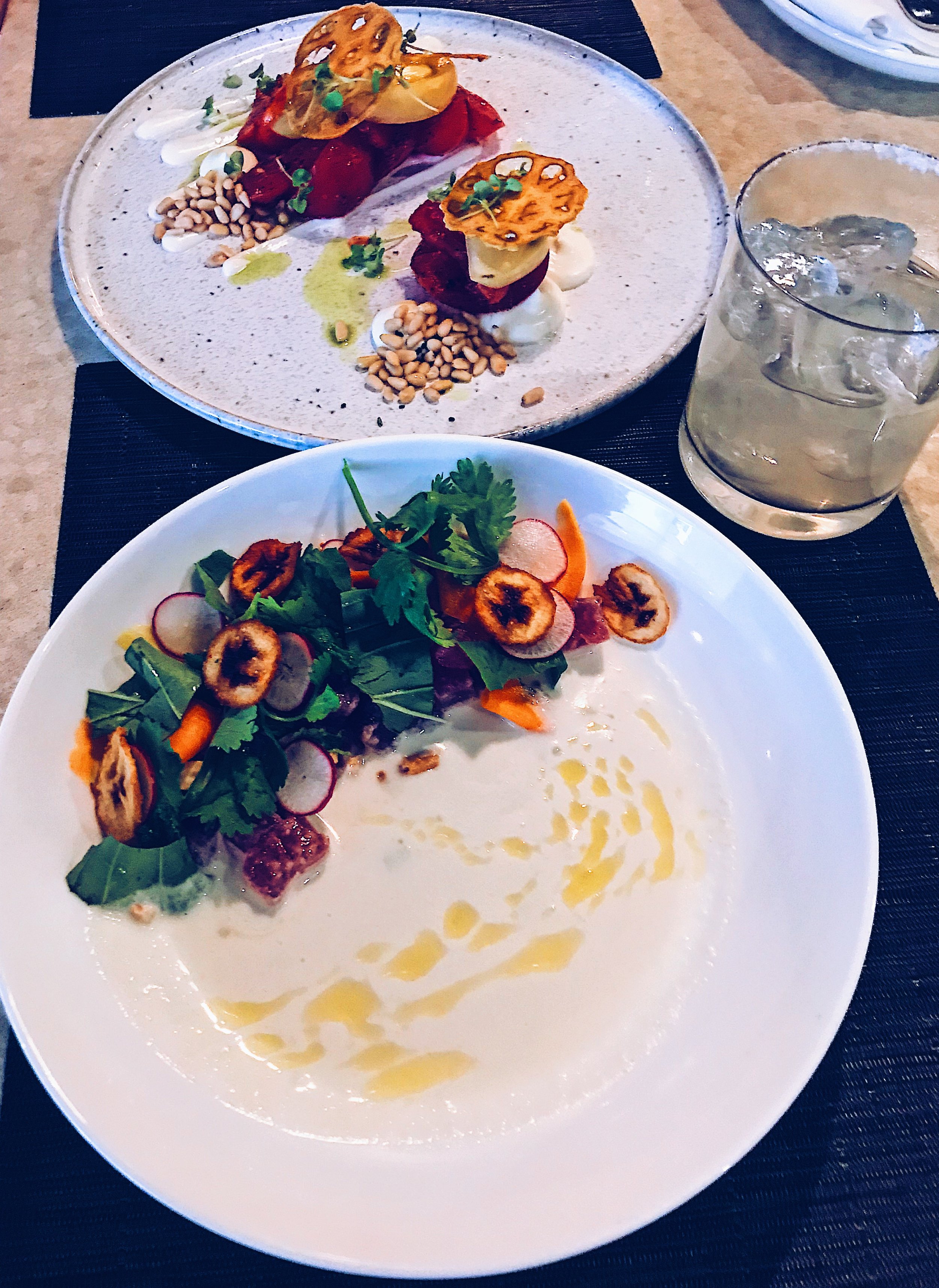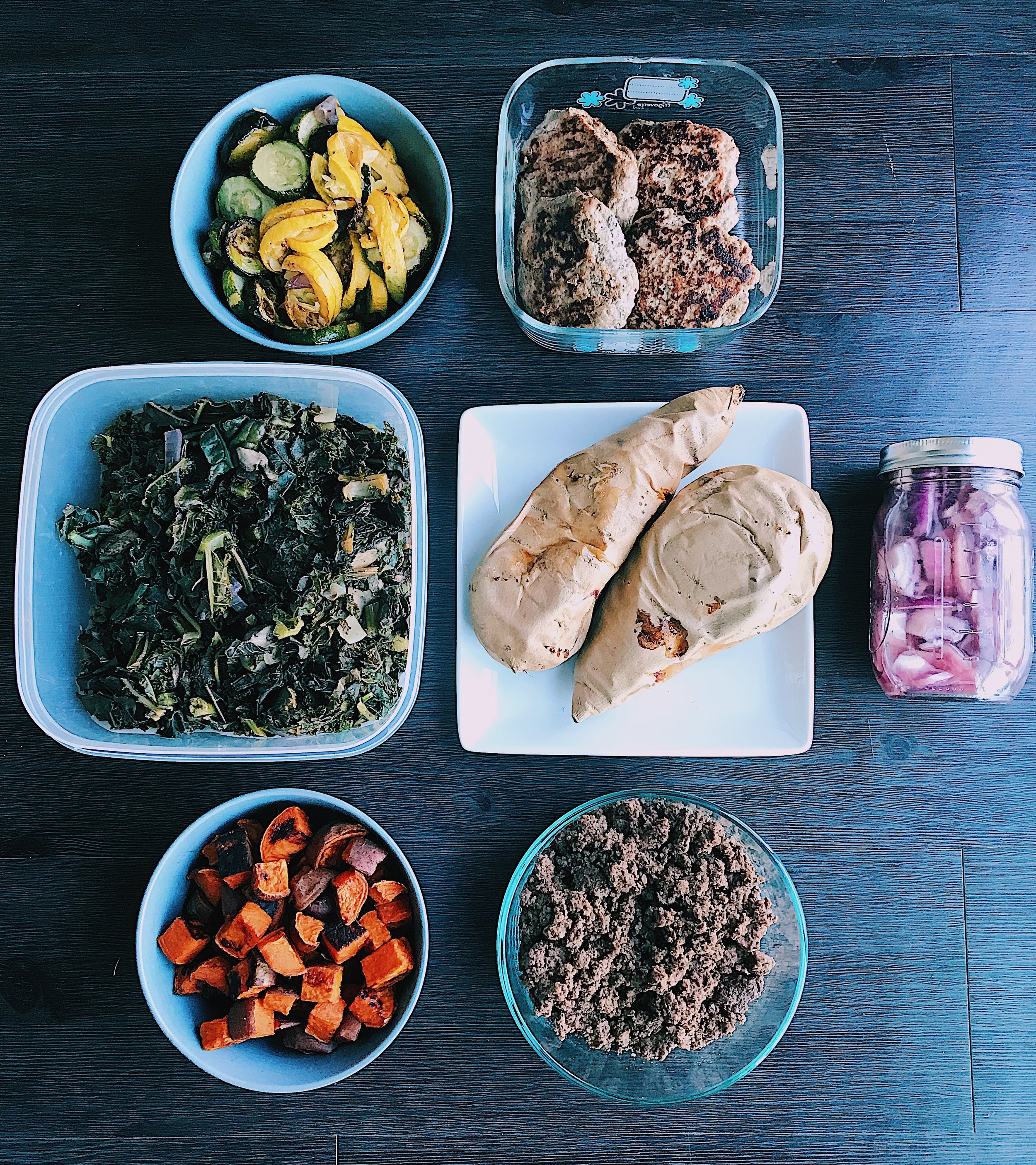Focusing on Food BEHAVIORS & Why Decreasing Intense Exercise is Helpful When Healing Our Relationships with Food
/Yoga and walking were the only activities I did for a few months while I honed and solidified my eating behaviors.
I distinctly remember my first foray into intuitive eating. I was living at home in Albuquerque, NM with my parents after graduating college while I studied for my CPA exam, and my body and mind were utterly exhausted from years of binge drinking and obsessing over my body and food.
After years of following rules, counting carbs, starving then binging, and soaking up every latest-and-greatest celebrity diet, I decided to turn inward. I declared that my body would be my guide while I leveraged a few loose (very loose) guidelines.
My main prerogative was normalizing my relationship with food, so I focused on my behaviors:
- Eating when hungry; stopping before I was full
- Bringing awareness to when I was eating out of boredom or another emotion
- Paying attention to my habits of mindless eating and snacking
- Asking myself if my choice now was worth the consequences later (it certainly was at times)
- Only engaging in calming and stress-free physical activity, which included yoga and walking
That last item is key, because had I engaged in my usual exercise routine of high-intensity interval training (HIIT) and long runs, it would have been much more difficult to practice and solidify the aforementioned behaviors.
Intense physical activity can be a hell of a lot of fun, but it forces us to pay more attention to our food, lest we risk feeling like crap, throwing our bodies out of balance, and experiencing subpar or decreasing performance.
If we’re demanding a lot out of our bodies, it makes sense that we have to fuel them appropriately via adequate calories, protein, carbs and fat. This means paying more attention to our food, not less.
For someone overcoming obsessive and neurotic food behaviors, this isn’t ideal.
Where to Start
Overdoing exercise often works in tandem with restrictive food behaviors, so releasing both at the same time can be unsettling.
However, trust me when I say that this puts you on the fast track to understanding your body, normalizing your relationship with food, and then being able to return to your usual fitness habits (if you so choose) with a much more enjoyable counterpart: the fuel.
So, where do you start?
By slowly scaling back your intense activity and replacing it with more stress-free movement:
- Slow walking (no power walking)
- Yoga (no sculpt or intense power yoga)
- Strength training (that doesn’t go to failure and leaves plenty of rest between sets)
- Leisurely hikes
- Any mildly strenuous outdoor activity, like skiing, snowboarding, or rock climbing. Bonus points for the calming effects of nature!
If you’re currently exercising five days per week intensely, replace three of those days with one of the activities mentioned above. Please note that this doesn’t mean walking for hours either—the goal is less, not more!
Notice I’m not asking you to completely remove your favorite activity—simply to scale back temporarily.
Utilize this time to reconnect with your body and SLOW DOWN. It’s really difficult to connect and listen when we’re moving a mile a minute. Which I understand is many of our baselines, but try to keep your eye on the long-term goal here:
To be able to return to your intense activity with a newfound understanding of your body, how to fuel it, and your food behaviors—all while approaching it with a sense of calm, trust, and ease.
Weight loss is often an ancillary result of this approach too, which is shocking to most clients (as it was for me in the beginning too).
We’re taught that more is better, both in volume and intensity, but that simply isn’t true. Our bodies aren’t mechanical machines—they’re independent ecosystems that are always trying to find a place of peace and balance.
It’s amazing what can happen when we finally meet them there and decide to be on the same team.
Sounds pretty nice, right?
Before you jump into tracking macros or trying another restrictive diet that promises to provide all of your answers, ask yourself if your behaviors around food are sound.
These are the building blocks for any changes you’ll make going forward—take the time now to build your foundation.
As my dad used to tell me as a child after I attempted every short-cut in the book during my first go-round:
“Do it right the first time, and you’ll save yourself so much time in the end.”
- Bill









